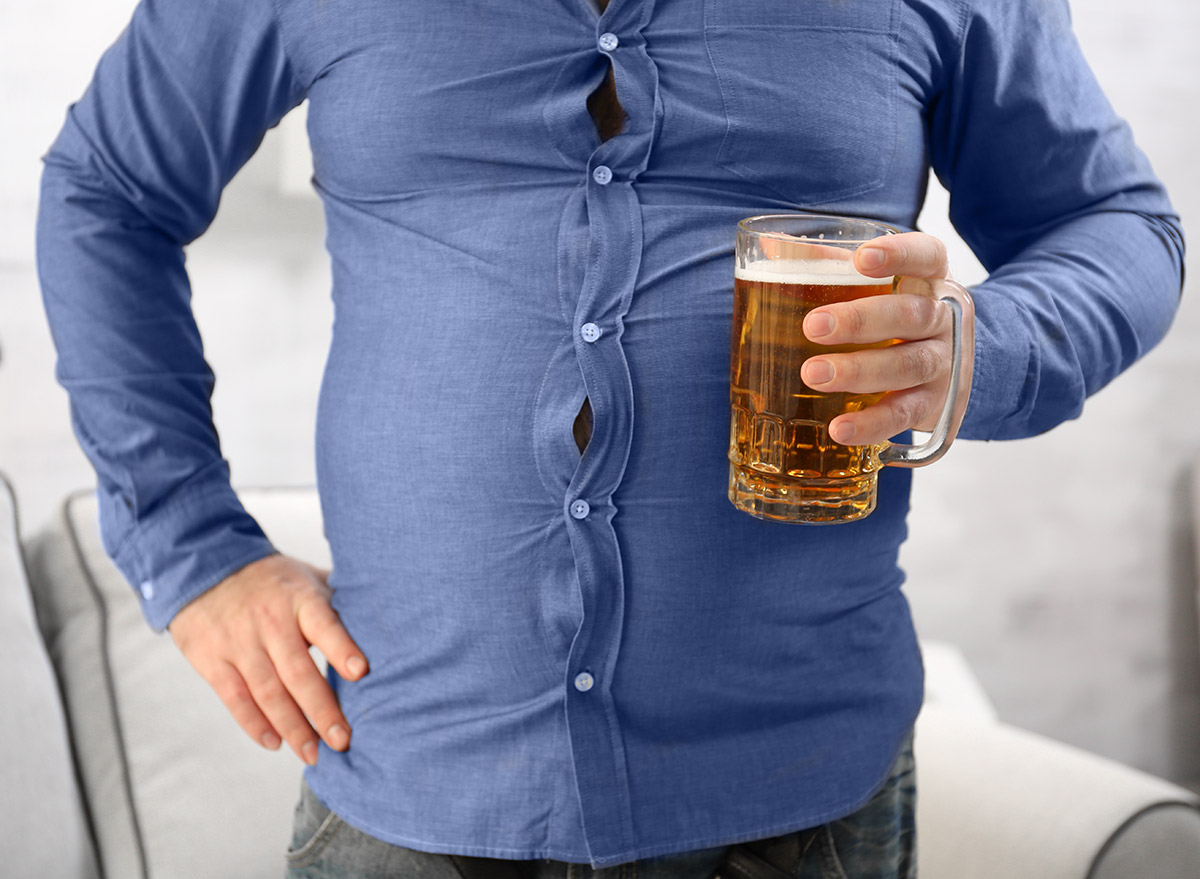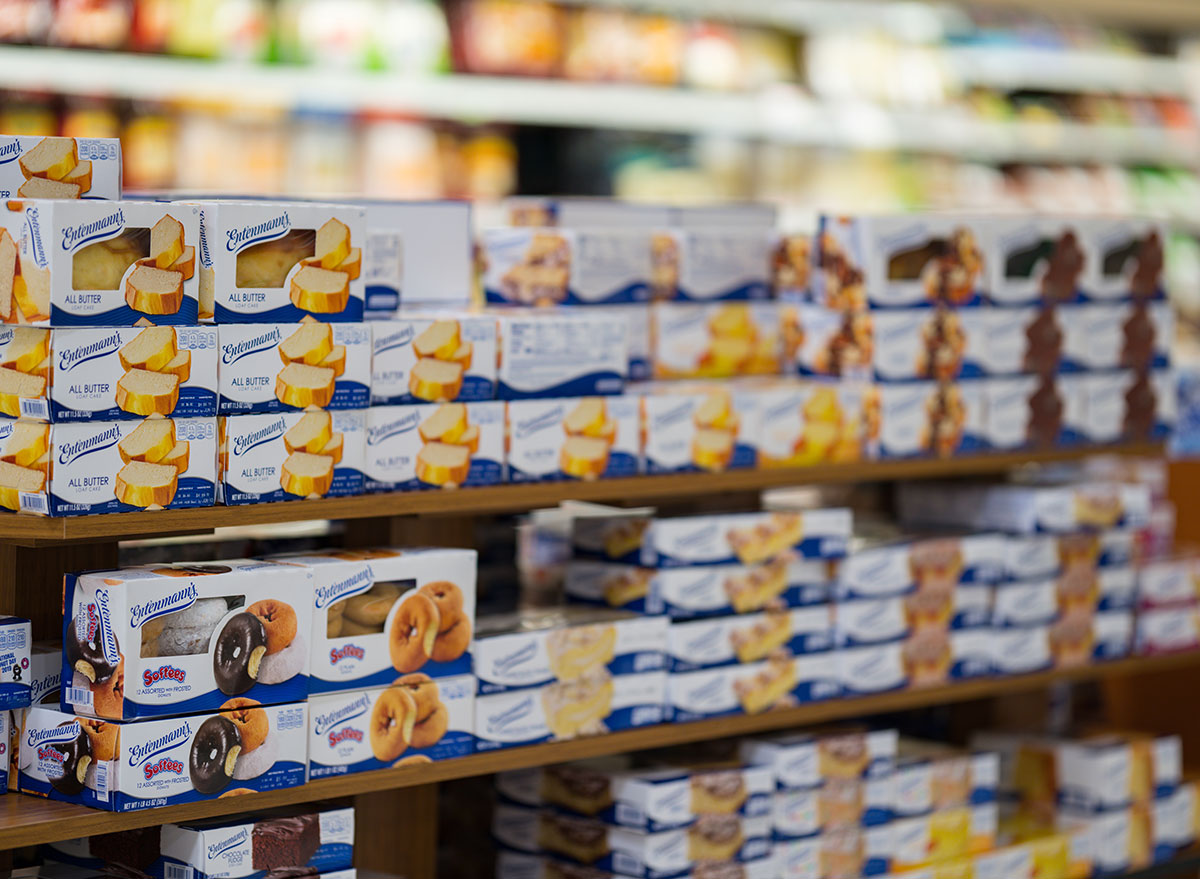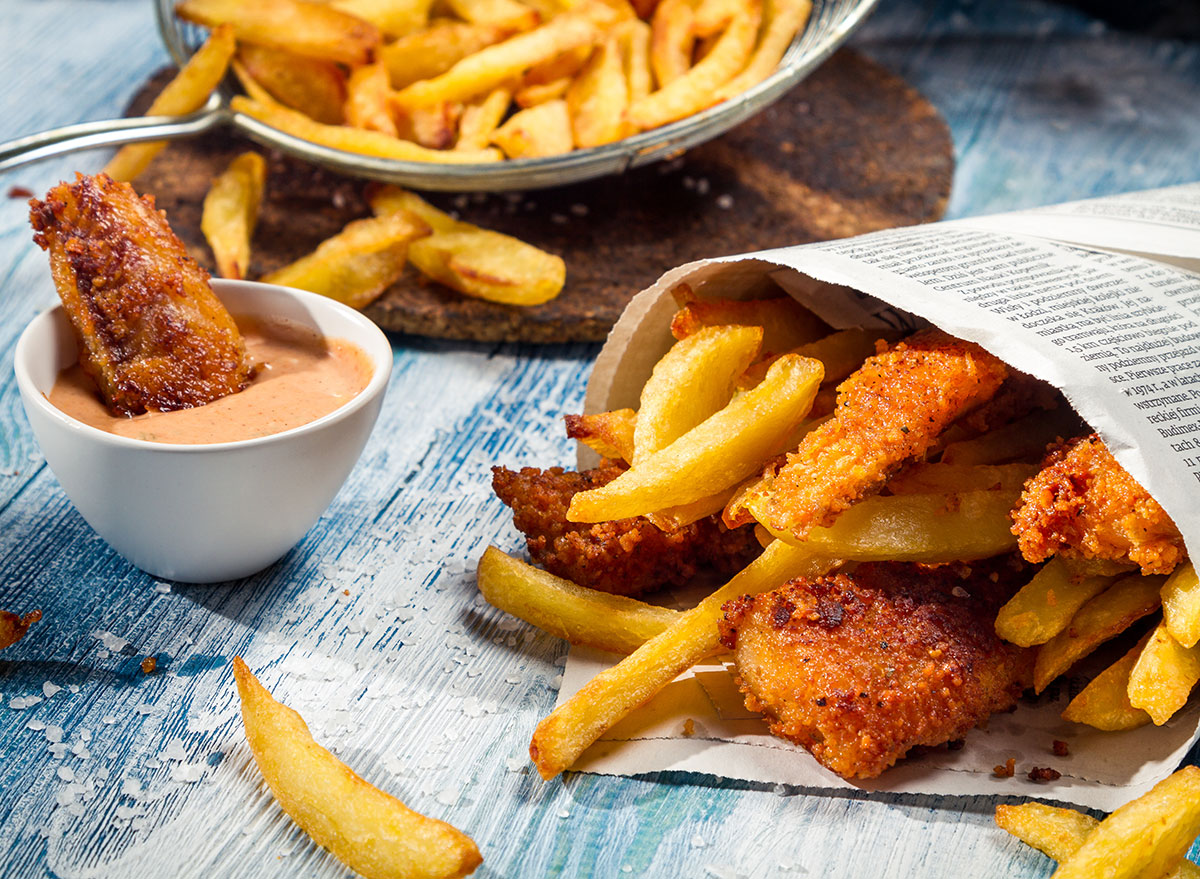Popular Foods That Increase Visceral Fat, Says Dietitian

Let’s set the record straight here—there is absolutely nothing wrong with having some belly fat. In fact, having adequate essential fatty acids is key for insulating and protecting vital organs as well as storing energy in the body via adipose tissue. Having too much visceral fat, on the other hand, can cause some issues.
“Visceral fat is the fat that lies below the abdominal muscle and builds up around the internal organs, like the intestines, stomach, and liver,” says Melissa Rifkin, MS, RD, CDN. “Because of the location of this fat, it has the potential to physically put pressure on the organs it surrounds, and potentially cause health issues.”
She adds that visceral fat releases hormones that are known to cause inflammation, which also affects the health of internal organs and blood vessels, and serves as a risk factor for several chronic diseases. Consuming too many calories each day, chronic stress, inadequate sleep, and leading a sedentary lifestyle may all contribute to visceral fat. However, there are specific types of foods that can put you at higher risk.
Refined grains

Refined or processed carbohydrates are most commonly found in baked goods including cakes, cookies, donuts, and yes, even white bread. Grains become refined when food manufacturers strip the bran and germ from them through a process called milling. This process also removes most of the nutrients and fiber from the grain, resulting in processed carbohydrates, such as white flour or white rice, that have a longer shelf life.
While unprocessed carbohydrates like whole-grain bread and brown rice are a part of a healthy diet, refined carbohydrates can give you belly fat—if enjoyed in excess.
“This type of carbohydrate is known to promote inflammation on its own and is often associated with abdominal fat,” says Rifkin. “To reduce your chances of building visceral fat, swap refined carbs for whole-grain options, including whole-grain bread and cereal.”
For ideas, be sure to check out Every Cereal Brand in America in 2021—Ranked!
Alcohol

Hitting up happy hour several times a week could be a cause for visceral fat build-up, despite how healthy your diet is otherwise.
“Another item that is often associated with abdominal fat is alcohol,” says Rifkin. “While small amounts may actually provide some positive health attributes, a higher intake of alcohol can cause inflammation, negatively impact the liver, and is linked to excess abdominal fat.”
Trans fats

Technically, trans fats are banned, but that only applies to adding man-made artificial trans fats known as partially hydrogenated oils or PHOs to packaged foods.
“This type of fat is formed during the manufacturing of processed foods and is considered to be the least healthy form of fat,” says Rifkin.
There are also naturally occurring trans fats in animal products, however, there isn’t enough comprehensive research to conclude whether or not animal-derived trans fats are as harmful to human health as lab-created ones.
“Some animal studies suggest consumption of trans fats is associated with abdominal fat, and it is well established that trans fats can increase inflammation in the body and play a negative role in disease development,” she adds. “You can avoid trans fats by limiting your intake of processed food items and anything prepared with shortening and margarine.”
Some fried foods can also be high in trans fats, depending on which types of oil they’ve been fried in. For example, some vegetable oils may harbor trans fats, the content of which can increase slightly during the cooking process—especially if the frying oil is reused.
Sugary beverages

Refined sugars, primarily found in sweet tea, soda, and other soft drinks that are sweetened with sugar, can also be a major contributor to visceral fat. One 2020 study from the European Journal of Preventive Cardiology found that long-term consumption of added sugars and sugar-sweetened beverages was associated with higher visceral adipose tissue in participants.
For more, don’t miss Secret Side Effects of Drinking Soda, Says Science. Then, don’t forget to sign up for our newsletter to stay on top of all the latest health food news.








